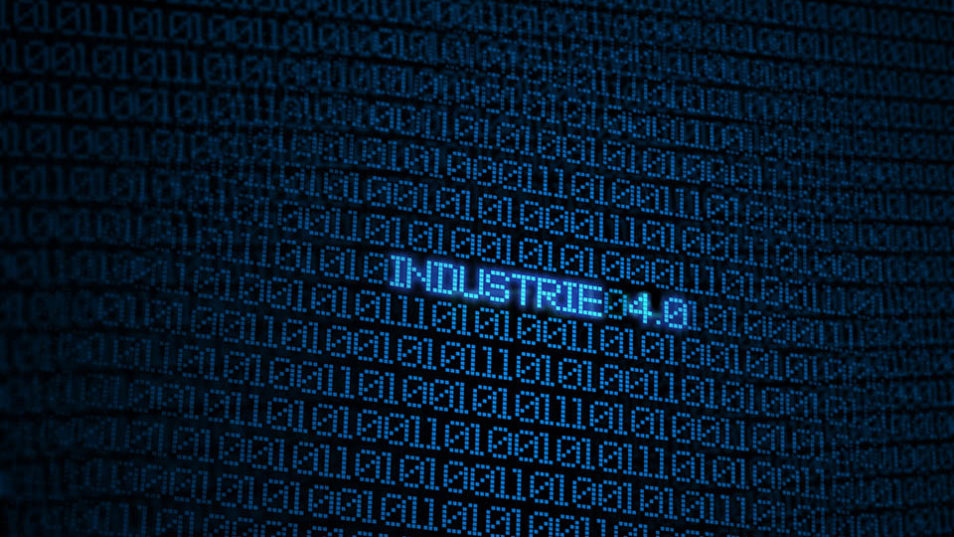Could the Coronavirus Crisis Spur Industrie 4.0?
 © DWIH Tokyo/iStock.com/Christian Horz
© DWIH Tokyo/iStock.com/Christian Horz
January 18, 2021
[by Toru Kumagai]
Position Paper on COVID-19 and Digitalisation Released
On June 23, 2020, the Federal Ministry for Economic Affairs and Energy and the Federal Ministry of Education and Research in Germany presented a noteworthy position paper. In the paper, titled “COVID-19 and Industrie 4.0,” German scientists, engineers and government officials laid out their case that “the coronavirus crisis will accelerate the trend towards smart and interconnected manufacturing.”
The paper was formulated by Plattform Industrie 4.0, an agency that aims to drive forward digital transformation in Germany’s manufacturing sector. Led by the Ministry for Economic Affairs and Energy and the Ministry of Education and Research, the agency was established in Berlin in 2013 with the aim of developing strategies for the digitalisation of manufacturing, coordinating the activities of corporations and research institutes, and enlightening citizens and businesses, with the participation of representatives from central government, academia, the industrial arena, and labour unions.
Industrie 4.0 boosts resilience to crisis
Upon the release of the paper, Peter Altmaier, the Federal Minister for Economic Affairs and Energy, said, “The coronavirus crisis has shown everyone just how important digital interconnection, well-functioning value and supply networks, and a secure and interoperable use of data are for the German industrial sector.”
Lockdowns, which began in late March 2020 and lasted for about six weeks across Europe, resulted in sudden border closures between countries, leaving companies temporarily unable to procure parts, semi-finished products and raw materials. Companies that had yet to be digitalised had no choice but to suspend production activities. This was an unprecedented situation in which the manufacturing industry experienced demand and supply shocks at the same time.
In the light of these circumstances, the minister went on to remark: “A consistent implementation of Industrie 4.0 paired with the GAIA-X digital infrastructure will make the German and European industrial sectors more competitive and resilient as they go forward. It will now be important to give as many small and medium-sized enterprises as possible access to new technologies. If we succeed in this transfer, we stand a good chance of emerging from this crisis stronger.”
The Ministry for Economy Affairs and Energy and the Ministry of Education and Research believe that, “the coronavirus crisis will accelerate the trend toward smart and interconnected manufacturing.”
“Pandemic will accelerate digital shift”
Plattform Industrie 4.0 consists of six working groups, and the paper was written by Working Group 6, which is responsible for digital business models.
The working group includes Professor Frank Piller at RWTH Aachen University, Mr Sicco Lehmann-Brauns from Siemens AG, Ms Lilian Matischok from Robert Bosch, and other commissioners who are engaged in research on the practical application of new business models on digital platforms for the German manufacturing industry.
Professor Piller and the other formulators pointed out in the paper that the coronavirus crisis is the most serious challenge that the German manufacturing industry has ever experienced; its impacts on manufacturers are so drastic that it requires companies and industries not only to manage the crisis in the short term, but also to develop strategic new options for the future.
The formulators also advocate that the pandemic will act as a “catalyst,” further reinforcing the existing trends towards digitalisation that are advancing in the 21st century, thus fundamentally changing our daily lives and economic activities and creating “new winners”; saying, “we need to create innovative business models that meet the new demands of an era in which to live in symbiosis with the coronavirus.”
Coronavirus makes SMEs aware of the need to go digital
Until the end of 2019, the German manufacturing industry was experiencing an unprecedented economic boom. Some small and medium-sized enterprises (SMEs) were inundated with orders from foreign countries to the extent that they could not cope with them.
However, the coronavirus crisis–and the attendant unparalleled circumstances–since March of this year have marked a turning point causing SMEs to deploy remote production methods and digital platform-based order reception and sales methods. Specifically, in order to avert infectious risks among employees, a business model was needed that would allow them to continue production and sales activities without having to step into their factory facilities.
Professor Piller of Working Group 6 predicts in the paper: “The coronavirus crisis is a major driver for the digitalisation of manufacturing and business models using digital platforms. Companies will use their lockdown experience to spur the automation of their manufacturing processes and digitalised services.” It thus follows that, rather than the traditional strategy of relocating production facilities to foreign countries with lower labour wages, a new product assembly concept will be needed that focuses more on the local market.
For example, a number of manufacturing companies will increase their investment in the highly flexible concept of “Manufacturing as a Service,” that is to say, a service in which a manufacturer that does not possess its own plant outsources the manufacture of its products to another company with production capabilities in its plant, and pays an operation consignment fee based on the time spent producing the products.
In addition, Additive Assembly Technology, which uses 3D printers, will also become more important. When procuring components from a foreign manufacturer, for example, a manufacturer purchases and downloads a software program for manufacturing the components from the foreign manufacturer on a digital platform, instead of importing the components itself. The manufacturer who purchased the software then uses the program to print out the components at a factory with the raw materials and a 3D printer.
Japan-Germany Cooperation for IoT is under way
Cooperation on IoT between Japan and Germany is already under way. Plattform Industrie 4.0 and the Robotic Revolution & Industrial IoT Initiative (RRI), Japan’s IoT promotion body, have agreed to cooperate in areas such as international standards for IoT and cybersecurity at Hannover Messe 2016 and CeBIT 2017. Also, in March 2019, Japan and Germany published a discussion paper on the Asset Administration Shell, a key element for smart factories.
https://www.plattform-i40.de/PI40/Redaktion/EN/Downloads/Publikation/2019-usage-view-asset-administration-shell.pdf?__blob=publicationFile&v=6
On May 28, 2020, Plattform Industrie 4.0, National Academy of Science and Engineering (Germany) and the RRI held a Japan-Germany experts meeting on “Manufacturing Policy in the world of Post COVID-19,” during which the following joint statement was made: “The digital transformation of society should be accelerated from the era of a ‘cost-competitive’ paradigm to the new era of ‘value-added and risk-competitive’ paradigm.
We want to build sustainable and resilient economies and a sustainable and resilient society.” This reflects the growing recognition in both Japan and Germany that the emphasis must be placed not only on profitability, but also on resilience and resistance in times of crisis, and also that digitalisation of manufacturing might be capable of offering a solution to this end.
https://www.jmfrri.gr.jp/content/files/Open/2020/20200701_AG1_Post%20COVID19/Post%20COVID-19_r9-2.pdf
The experts meeting certainly will lead to active debates among Japanese and German scientists and businesspeople regarding how to accelerate digitalisation in the “With Corona” era.
(Note: On September 30, 2020, the Honda Foundation announced that the Honda Prize will be awarded to Dr. Henning Kagermann, former chairperson of the Board of Trustees at National Academy of Science and Engineering (acatech), who is one of the proponents of Industrie 4.0. Click here for more information)
DWIH Tokyo and other Japanese-German organisations have organised events related to Industrie 4.0.
Web Live Talk “Future of Work in Industry 4.0 & Society 5.0″
German Business Seminar “Logistics 4.0 in Germany / NRW”
Manufacturing Business and Paradigm Shift Talked by Global Top “The Robot Revolution and Industrial IoT International Symposium 2020”
Click here to read other articles from the series “Toru Kumagai’s report on R&D trends in Germany”.

About Toru Kumagai
Born in Tokyo in 1959, Kumagai graduated from the Department of Political Science and Economics at Waseda University in 1982 and joined Japan Broadcasting Corporation (NHK), where he gained a wealth of experience in domestic reporting and overseas assignments. After NHK, he has lived and worked as a journalist in Munich, Germany, since 1990. He has published more than 20 books on Germany and Germany-Japan relations, as well as been to numerous media outlets to report on the situation in Germany.
